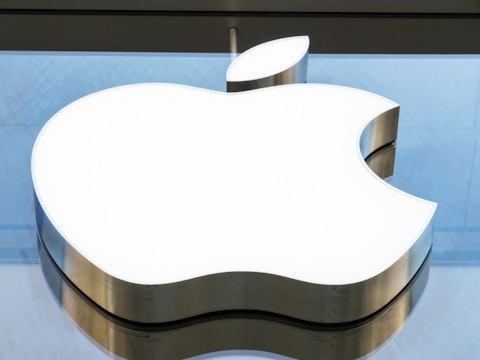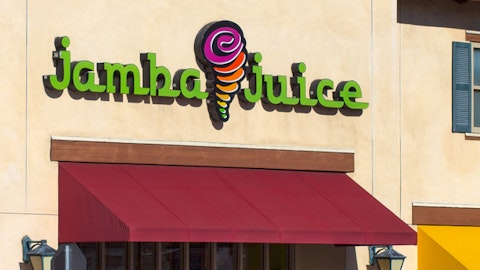NWI Management, led by fund manager Nellapalli Neelakantan Hariharan, known as “Hari”, a graduate from Indian Institute of Management in Ahmedabad India, is a New York-based hedge fund founded in 1999 by Hariharan that employs a macro short/long strategy for its investments. According to its 13F filing for the period March 31, the fund had a public equity portfolio of $799.67 million, dominated by finance at 32% of that capital, and technology with 26%. In this article we’re going to take a closer look at some of the tech stocks Hariharan made a move in after dumping some of his Apple Inc. (NASDAQ:AAPL) position during the first quarter. NWI Management sold off 20% of its stake in Apple while adding to its positions in Google Inc (NASDAQ:GOOGL), and Alibaba Group Holding Ltd (NYSE:BABA).

FooTToo / Shutterstock.com
Let’s first take a step back and analyze how tracking hedge funds can help an everyday investor. Through our research we discovered that a portfolio of the 15 most popular small-cap picks of hedge funds beat the S&P 500 Total Return Index by nearly a percentage point per month on average between 1999 and 2012. On the other hand the most popular large-cap picks of hedge funds underperformed the same index by seven basis points per month during the same period. This is likely a surprise to many investors, who think of small-caps as risky, unpredictable stocks and put more faith (and money) in large-cap stocks. In forward tests since August 2012 these top small-cap stocks beat the market by an impressive 84 percentage points, returning over 142% (read the details here). Follow the smart money into only their best investment ideas all while avoiding their high fees.
Follow Hari Hariharan's NWI Management
Let’s begin with the largest first, namely the 27,600% increase in Alibaba Group Holding Ltd (NYSE:BABA) that gave NWI Management a stake in the Chinese e-commerce conglomerate of 277,000 shares with a value of $23.06 million. Alibaba, known for being the highest-valued IPO in history as of today, has been traded up and down since it began trading in September of last year. With a drop of 7.5% since then and 16.4% year-to-date, Alibaba hasn’t exactly lived up to the lofty expectations foisted upon it by that record-setting IPO. That’s not to say things can’t change quickly. The e-commerce giant’s entrance into the Indian market, one which was recently initiated and accelerated of late, certainly shows promise. Last week it was revealed that Alibaba has signed a contract with TDI International, a leading advertising agency on the Indian market. This makes TDI not only an important partner, but also Alibaba Group Holding Ltd (NYSE:BABA)’s first official partner in the giant market, one that today has an estimated value of $20 billion and is expected to reach $300 billion by 2030. Earlier this week, Alibaba also formed a partnership with the Indian logistic provider MYPACCO for logistics services in India. During the spring, Alibaba announced that it has taken stakes in the largest domestic phone maker in India as well, Micromax, and if it wasn’t enough, The Wall Street Journal reported that Alibaba is looking to acquire Indian e-marketplace website Snapdeal.com. Indeed, something monolithic is going on India with Alibaba as it makes its first big steps out of China not tentatively, but confidently and aggressively. Alec Litowitz and Ross Laser from Magnetar Capital seem to like the steps Alibaba is taking, having increased their stake in the company by 145% to 6.46 million shares valued at $537.62 million during the first quarter.
In Google Inc (NASDAQ:GOOGL), Hariharan and his fund took a new stake in the first quarter of 60,800 shares with a value of $33.32 million in Google’s Class C shares, while also increased his position in the same company’s Class A shares by 33% to 100,000 shares with a value of $55.47 million. To be clear, Google’s shares were subject to a split last spring, into voting-right and no-voting-right shares, where the Class C “GOOG” shares are the one that don’t have any voting rights, while the Class A shares (primarily held by Google’s upper management) do. Google has been having a relatively slow spring on the stock exchange with its Class C shares returning just over 2% year-to-date, as investors appear to be waiting for Google to do something big with some of its cash reserves. On June 11 it was revealed that Google had increased its stake in startup language teacher Duolingo by another $45 million. Duolingo, being very successful in acquiring users for its apps with 100 million total , 66% higher than in January 2014, is indeed a company in line with Google’s educational accessibility focus. Andreas Halvorsen from Viking Global also seems quite bullish on Google Inc (NASDAQ:GOOGL), increasing his stake in its Class A shares by 121% to 1.64 million shares with a value of $908.85 million, and opening a new position in its Class C shares of 841,187 shares valued at $460.97 million.
Even if NWI Management decreased its stake by 20%. it still holds 929,250 shares in tech giant Apple Inc (NASDAQ:AAPL), with a value of $115.63 million. As we covered last week, Apple is about to become major competition for Spotify with its launch of Apple Music, though analysts and the markets did a collective yawn at the revelation. Analysts remain skeptical regarding the profitability of the music market while admitting that it’s at least possible Apple can utilize unique tie-ins and build up its ecosystem. Apple, which is up by 15.61% so far this year, is also rumored to be working on new Watches already, despite the current versions barely being out of the warehouses and onto wrists. It will interesting to see whether that revelation and the general consensus that the next version will be much better, will have an impact on sales of the first Watch. Apple Inc (NASDAQ:AAPL)’s largest shareholder in our database remained Carl Icahn, owning 52.76 million shares with a value of $6.5 billion.
Disclosure: None





